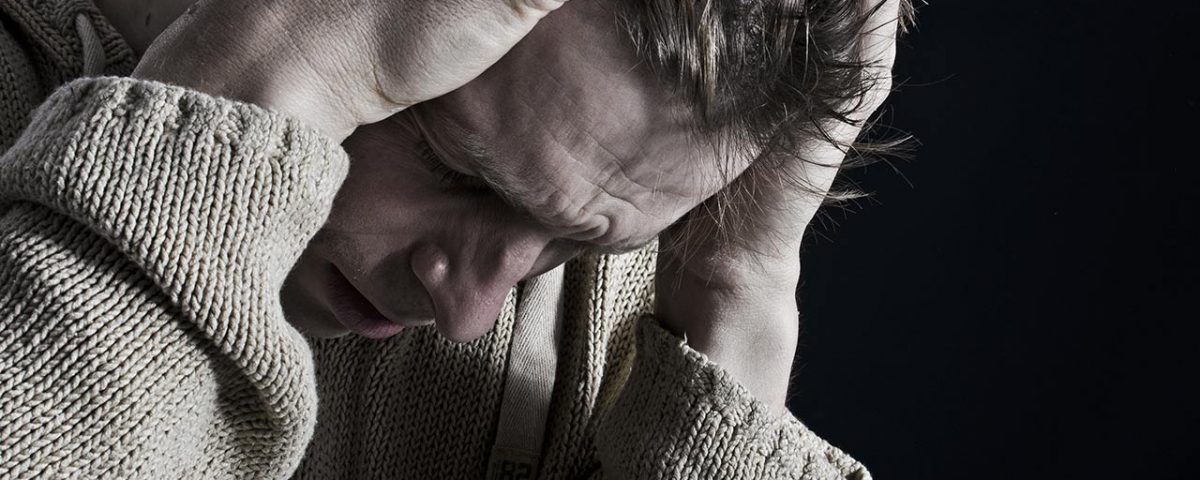Very often, the intense sense of fear and dread, more commonly known as anxiety, is caused by a specific event or situation.
This form of anxiety is quite common and can occur in anyone. You may have experienced anxiet y at least once before, possibly before an important job interview or on the first day of school or work. Today, we’re diving into what situational anxiety is, what causes it, and common symptoms to look out for.
Defining Situational Anxiety Disorder
Situational anxiety disorder is a form of anxiety that occurs in response to a specific situation. Like we mentioned before, there are plenty of anxiety-worthy situations like taking a big exam or presenting something in front of a large group of people.
Situational anxiety is not recognized as a distinct condition in the Diagnostic and Statistical Manual of Mental Disorders (DSM-5), which is the clinical manual that doctors use to diagnose patients with mental health disorders. However, if situational anxiety symptoms meet certain criteria, such as being distressing enough to interfere with daily living, they may meet the criteria for a type of anxiety disorder known as a specific phobia.
A specific phobia is an intense and irrational fear of a specified object or situation. People with phobias may experience an excessive and overwhelming sense of fear when they come across the source of their phobia, causing avoidance.
For instance, people with an intense phobia of spiders would be diagnosed with arachnophobia. Some phobias are centered on a specific object of fear, while others are more complex and tied to different situations or circumstances.
Phobias are quite common, affecting about 19 million adults in the United States, with women being two times more likely to have a specific phobia than men.1 Some people even experience multiple phobias at once, 75% of people to be exact.2
However, phobia and situational anxiety disorder are not the same things. If symptoms of situational anxiety worsen, however, they can contribute to a phobia.
Situational Anxiety Disorder Symptoms
Common symptoms of situational anxiety disorder include:
- Rapid or irregular breathing
- Increased heart rate
- Stomach cramping and pain
- Diarrhea
- Difficulty concentrating
- Dizziness
- Dry mouth
- Lightheadedness
- Irritability
- Muscle tension
- Nausea
- Nervousness
- Restlessness or trembling
- Excessive sweating
People with situation-based anxiety may also experience feelings of worry, trouble sleeping, and panic when they come across the source of their anxiety. They may even experience a panic attack, which is an episode of intense fear or anxiety that may lead to more distressing symptoms.
Causes of Situational Anxiety Disorder
There are various factors that may contribute to situational anxiety, such as new or changing situations. Because people are often unsure of what to expect or how to respond to a particular situation, anxiety may occur.
Situational anxiety symptoms may also occur in situations where people have had a previous negative or uncomfortable experience. For instance, if you’ve had a bad experience when speaking in front of a crowd, you may experience situational anxiety the next time you’re faced with a similar situation.
Being more susceptible to anxiety, in general, can also increase your likelihood of experiencing situational anxiety. However, it’s important to note that generalized anxiety disorder (GAD) and situational anxiety are not the same. Where GAD involves a persistent state of generalized worry or fear, situational anxiety occurs in response to a specific situation.
Common Situational Anxiety Triggers
There are a number of particular situations that are most often linked to anxiety. Some of the most common triggers of situation anxiety include:
- First day of school or a new job
- Job interviews
- Presentations
- First dates
- Traveling to a new place
- Moving
- Being away from home
- Going off to college
- Meeting people at a social gathering
- Social situations
- Making small talk with strangers
- Being assigned to lead a group
- Public speaking
Major life changes can also trigger anxiety, such as a wedding day, graduation day, or the birth of a child, to name a few. Unfamiliarity is a common theme for many situational anxiety triggers.
It’s normal to experience anxiety in the face of situations that are unfamiliar. In many cases, situational anxiety begins to subside once the situation becomes more familiar.
Help for Anxiety
Because situational anxiety isn’t a distinct condition in the DSM-5, there isn’t necessarily any specific treatment for situational anxiety. This condition usually isn’t severe enough to interfere with a person’s quality of life, so professional treatment may not be required.
However, situational anxiety can worsen if the person fails to utilize self-help strategies. For those with generalized anxiety disorder or any other anxiety disorder, our Florida mental health rehab can help.
Banyan offers inpatient mental health treatment for all kinds of conditions. From inpatient anxiety treatment to therapy for depression, OCD, and more, our rehab in Boca Raton, Florida, helps patients pave a path to a fulfilling and happy life.
Whether you want to learn more about what situational anxiety is or want more information about the services offered at our Boca Raton Banyan rehab, call Banyan Treatment Centers today at 888-280-4763 to be connected to one of our team members.
Related Reading:
Dating Someone With Social Anxiety
How Anxiety Affects the Brain
Sources:
- Anxiety & Depression Association of America - Facts & Statistics
- DSM Library - Diagnostic And Statistical Manual Of Mental Disorders, Fifth Edition









